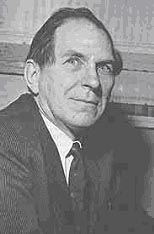On June 25, 2014, the following scientific study made the cover of the prestigious journal, Nature: “Aspergillomarasmine A overcomes metallo-β-lactamase antibiotic resistance.” Doesn’t exactly sound earth-shattering, does it? But the discovery of a fungal compound that restores the efficacy of one of our antibiotics of last resort is, in fact, huge news.
The discovery of antibiotics was unquestionably one of the most powerful contributions to public health of all time—right up there with water sanitation,  vaccination, and hand-washing. Each of these innovations struck a blow against the infectious diseases that had been the principal cause of death, especially of children, for hundreds of years. Indeed, antibiotics and vaccinations were so miraculously effective that by 1963, paleopathologist T. Aidan Cockburn made the following prediction in his book The Evolution and Eradication of Infectious Diseases:
vaccination, and hand-washing. Each of these innovations struck a blow against the infectious diseases that had been the principal cause of death, especially of children, for hundreds of years. Indeed, antibiotics and vaccinations were so miraculously effective that by 1963, paleopathologist T. Aidan Cockburn made the following prediction in his book The Evolution and Eradication of Infectious Diseases:
We can look forward with confidence to a considerable degree of freedom from infectious diseases at a time not too far in the future…it seems reasonable to anticipate within some measurable time, such as 100 years, all the major infections will have disappeared.
Poor Dr. Cockburn, with this quote, made himself the eternal poster boy for his era’s wild optimism, but he was not alone. In his defense, he followed the cheery statement above with this one, which proved far more prescient:
This desirable goal will not be easily reached, for the difficulties are many, and unpleasant surprises are inevitable…Evolution is not merely something that happened in the past; it is an essential part of both the present and the future, so that out of all the microorganisms that are continually seeking to invade our bodies, one that is favored by changing conditions will occasionally succeed.
HIV, SARS, and Ebola—all unknown in 1963—each confirm Cockburn’s prediction of unpleasant surprises, although I, personally, dislike his framing of the microbial world as one filled with dastardly actors scheming to infect humans. The vast majority of microbes are utterly indifferent to humans, and far more of them are helpful to us than harmful. But be that as it may, the more interesting part of the quote is this: “one that is favored by changing conditions will occasionally succeed.”
Cockburn was absolutely correct that “changing conditions” would allow infectious agents to succeed. Here’s the irony: the “changing condition” that most favored infectious agents was the profligate use of antibiotics—the supposed wonder drugs. To be fair, there wasn't much known at the time about how the spectacular genetic variability of bacteria would contribute to the development of resistance. Practically nothing was known about the elaborate social lives of microbes, which use small chemical compounds to communicate, compete, and cooperate with each other within and across species boundaries.
Bacteria, and other microbes, have been living with these small molecules in their environment for billions of years and have evolved several effective defenses against harmful ones, including pumping them out of their cells or attacking them chemically, These defense mechanisms were already widespread in the bacterial world, so when antibiotic use took off, it was only a matter of time before selection pressure favored bacteria that carried protective genetic tools. Resistance spread quickly because bacteria are able to share genes with each other easily, both within and across species. But wait, it gets worse: bacteria can string whole series of resistance genes together onto a small ring of DNA called a plasmid, and export an entire Swiss Army knife of resistance to other bacteria. Resistance, multi-drug resistance, and extreme multi-drug resistance can and did spread rapidly.
It’s against that background that “Aspergillomarasmine A overcomes metallo-β-lactamase antibiotic resistance” is huge news, as I’ll explain in part 2.

